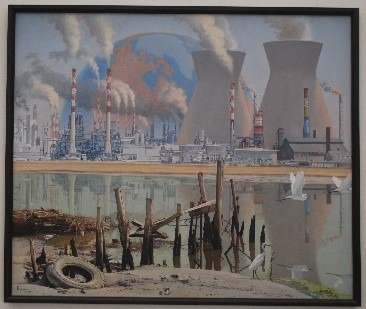Item Link: Access the Resource
Date of Publication: December 14, 2018
Publisher: Greenpeace
Author(s): Rex Weyler
This year, international delegates gathered in Katowice, Poland for the thirty-second international climate meeting in 40 years. As they dithered over whether they should “welcome” or “note” the 1.5°C pathways report they had commissioned, our world was on pace to set another all-time record of 10.88 billion tonnes of annual carbon emissions. Carbon-dioxide in our atmosphere has reached over 412 parts per million, 47% higher than pre-industrial levels, and higher than any time in the last four million years.
In spite of record increases in solar and wind energy development, human carbon emissions continue to rise because, over the last decade, fossil fuel use has grown ten-times faster than renewable energy use. In spite of good intentions, nothing we have achieved has actually reduced oil, gas, and coal use. Given the slow pace of climate action, some ecologists have wondered if peak oil production might arrive in time to forestall runaway global heating.
Oil industry disinformation has unnecessarily confused the biophysical fact of peak oil. Non-renewable or very-slowly-renewable resources — such as oil and coal — typically exhibit a bell-shaped production curve, with a rise, peak, and decline. Conventional oil from drilled wells appears to have reached its peak. As conventional oil production begins to decline, that process could help reduce carbon emissions. However, of course, there’s a catch.
Read the complete article here.
The views and opinions expressed through the MAHB Website are those of the contributing authors and do not necessarily reflect an official position of the MAHB. The MAHB aims to share a range of perspectives and welcomes the discussions that they prompt.
